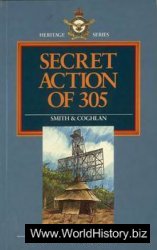The first stage of resistance to the West in Asia and Africa
must have confirmed many Westerners’ conviction
that colonial peoples lacked both the strength and the
know-how to create modern states and govern their own
destinies.
In fact, however, the process was just beginning. The
next phase began to take shape at the beginning of the
twentieth century and was the product of the convergence
of several factors. The primary sources of anticolonialist
sentiment were found in a new class of Westernized
intellectuals in the urban centers created by colonial
rule. In many cases, this new urban middle class, composed
of merchants, petty functionaries, clerks, students,
and professionals, had been educated in Western-style
schools. A few had spent time in the West. In either case,
they were the first generation of Asians and Africans to
possess more than a rudimentary understanding of the institutions
and values of the modern West.
The results were paradoxical. On the one hand, this
new class admired Western culture and sometimes harbored
a deep sense of contempt for traditional ways. On
the other hand, many strongly resented the gap between
ideal and reality, theory and practice, in colonial policy.
Although Western political thought exalted democracy,
equality, and individual freedom, these values were generally
not applied in the colonies. Democratic institutions
were primitive or nonexistent, and colonial subjects
usually had access to only the most menial positions in
the colonial bureaucracy.
Equally important, the economic prosperity of the
West was only imperfectly reflected in the colonies. Normally,
middle-class Asians did not suffer in the same manner
as impoverished peasants or menial workers on sugar
or rubber plantations, but they, too, had complaints.
They usually qualified only for menial jobs in the government
or business. Even when employed, their salaries
were normally lower than those of Europeans in similar
occupations. The superiority of the Europeans over
the natives was expressed in a variety of ways, including
“whites only” clubs and the forms of language used to
address colonial subjects. For example, Europeans would
characteristically use the familiar form of direct address
(normally used by adults to children) when talking to
members of the local population in their own language.
Out of this mixture of hopes and resentments emerged
the first stirrings of modern nationalism in Asia and Africa.
During the first quarter of the century, in colonial
and semicolonial societies across the entire arc of Asia
from the Suez Canal to the shores of the Pacific Ocean,
educated native peoples began to organize political parties
and movements seeking reforms or the end of foreign
rule and the restoration of independence.
At first, many of the leaders of these movements did
not focus clearly on the idea of nationhood but tried to
defend the economic interests or religious beliefs of the
native population. In Burma, for example, the first expression
of modern nationalism came from students at
the University of Rangoon, who formed an organization
to protest against official persecution of the Buddhist religion
and British lack of respect for local religious traditions.
Calling themselves Thakin (a polite term in the
Burmese language meaning “lord” or “master,” thus emphasizing
their demand for the right to rule themselves),
they protested against British arrogance and failure to observe
local customs in Buddhist temples (visitors are expected
to remove their footwear in a temple, a custom
that was widely ignored by Europeans in colonial Burma).
Eventually, however, they began to focus specifically on
the issue of national independence.
A similar movement arose in the Dutch East Indies,
where the first quasi-political organization dedicated to
the creation of a modern Indonesia, the Sarekat Islam (Islamic
Association), began as a self-help society among
Muslim merchants to fight against domination of the local
economy by Chinese interests. Eventually, activist elements
began to realize that the source of the problem was
not the Chinese merchants but the colonial presence, and
in the 1920s, Sarekat Islam was transformed into a new organization—
the Nationalist Party of Indonesia (PNI)—
that focused on the issue of national independence. Like
the Thakins in Burma, this party would eventually lead
the country to independence after World War II.




 World History
World History![The General Who Never Lost a Battle [History of the Second World War 29]](/uploads/posts/2015-05/1432581983_1425486253_part-29.jpeg)









